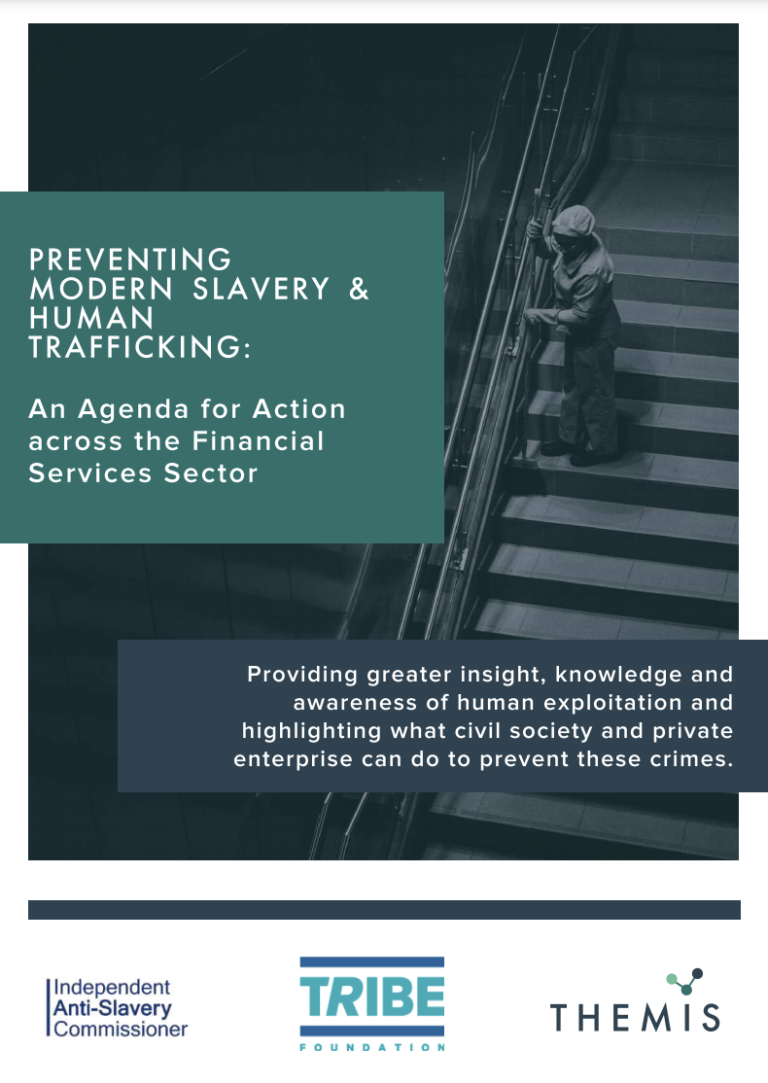There are over 40 million people in modern slavery worldwide. Modern slavery exists in every industry, in every country in the world. The financial services industry has a major role to play in combating this violent and abusive business. And yet our polling found that over one third (36%) of financial industry employees thought that their organisation had no influence at all in combating Modern Slavery and Human Trafficking (MSHT). It is no longer acceptable to look the other way. Ignorance is not a line of defence. If companies look hard enough, they will find it in their supply chains, but will they be prepared to respond? Saying you are concerned about MSHT through your MS statement is one thing, but taking responsible action is altogether harder but much more important.
This report is the culmination of a yearlong research and outreach project led by Themis in partnership with The Independent Anti-Slavery Commissioner’s Office (IASC), and TRIBE Freedom Foundation. The main objectives of the project are to draw attention to the issue of MSHT, highlight the linkages within the financial services industry, and sound a call to action for the industry as a whole.

